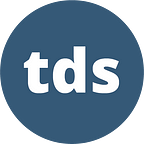Data Science Soft Skills, Revisited
If you look closely enough at any strict category, sooner or later it starts to fall apart. The common division of data scientists’ skills into “hard” and “soft” is no exception. Code documentation: a soft skill or a hard one? What about creating a sharp-looking chart, or setting up a streamlined Python environment?
This week, we’ve rounded up recent articles on skills that data scientists often think of as “soft” despite their central role in any successful career. These posts offer clear and actionable insights, and also show that observation, structure, and practice are just as useful when navigating human interaction as they are when learning math or Python.
- It’s crucial to know who to listen to. “Office politics” is an idea that many dislike; often, though, the term is just shorthand for an absence of clear priorities and effective leadership. To help you decipher an organization’s quirks, Cassie Kozyrkov recently shared a thought-provoking post on the moments when data practitioners should seek guidance from a senior executive instead of reaching out to their own manager.
- How to translate skills across roles. To stay nimble and continue to grow, Xiaoxu Gao reminds us of the modularity and extensibility of our skills. Based on her recent experience of transitioning from a software engineer role to that of a data engineer, she stresses the importance of carrying over successful principles and practices from one discipline to the next.
- Yes, communication still matters—a lot. Thomas Reinecke insists that the success or failure of software-development workflows (and, by extension, most data science projects) boils down almost entirely to communication. That’s why it’s so important to understand some of the biggest blockers to communicating well across teams and organizations.
- The subtle art of celebrating achievements. Letting other people know about your successful data projects and initiatives can feel awkward, if not outright self-promotional. It doesn’t need to, though. Preeti Semwal proposes three methods to inform colleagues of major professional milestones without alienating anyone along the way.
- Knowing when it’s time to change course. It feels inaccurate to call the ability to quit a “soft skill”; it’s very difficult to acknowledge when we’re on a wrong path, and taking action accordingly is tougher still. Two recent posts did a great job distilling that thought process: Conor O'Sullivan reflected on his decision to leave industry for academia, while Aayush Malik shared thoughts on leaving data science behind.
If you’re in the mood to branch out to other topics this week, we have a few more recommendations:
- Who doesn’t love a good explainer? Here’s one from Kimberly Fessel, covering the basics (and then some) of accuracy, precision, and recall in the context of classification models.
- Anyone interested in reinforcement learning shouldn’t miss Wouter van Heeswijk, PhD’s thorough introduction to the Trust Region Policy Optimization (TRPO) algorithm.
- Geospatial-data fans, don’t miss Helen McKenzie’s debut TDS post! It’s an accessible guide to isolines, “an incredibly powerful tool for data scientists, showing the areas that can easily access a given location.”
- Manipulating DateTime objects in Python can be tricky, but fortunately KahEm Chu is here to the rescue with a comprehensive, hands-on guide that includes all the code snippets you’ll need to practice on your own.
- With the rapid emergence of AI-generated art come many complex questions on creativity, authorship, and ethics. Javier Ideami attempts to tackle them in his nuanced deep dive on sustainable generative AI.
Thank you, as always, for your support. If you’d like to make the biggest impact, consider becoming a Medium member.
Until the next Variable,
TDS Editors
